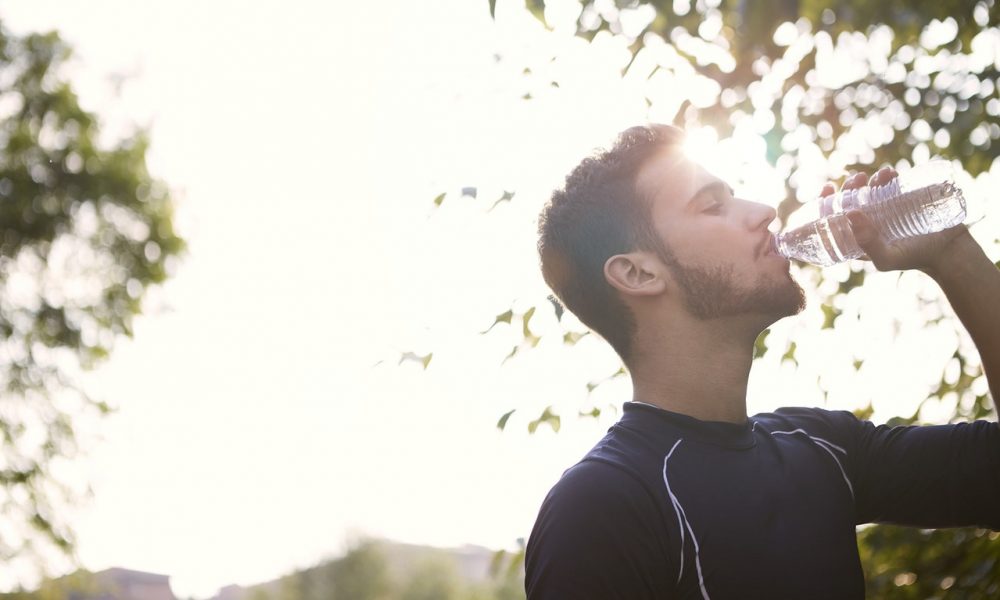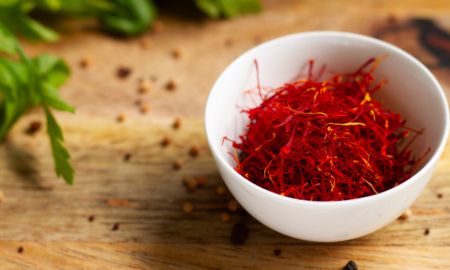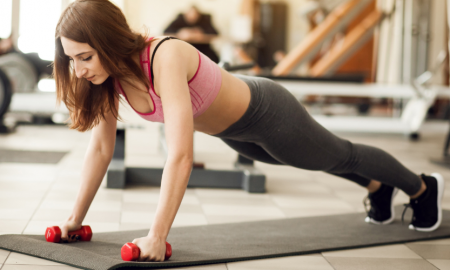
Hydration Tips You Could Take During Exercising

It’s important to drink water during a workout and so, a healthy habit might be to take a water bottle with you on your morning run. Being dehydrated can affect your energy levels, you won’t be able to work as hard if you haven’t drunk enough fluid. Drinking little and often rather than a lot less often will give you the best chance of hitting your exercise targets.
The amount you need to drink will depend on how much you sweat and how long you exercise. How much you sweat and lose water is influenced by your:
- Size: larger people tend to sweat more than smaller people, and men sweat more than women
- Fitness: fitter people sweat more and earlier in exercise because their bodies are accustomed to needing to cool down
- Environment: you sweat more in hot, humid conditions
- Exercise intensity: you sweat more as you exercise harder
Pre-workout

Ketut Subiyanto/ Pexels | About 80 percent of our fluid intake comes from liquids, and roughly 20 percent comes from the liquid found in watery foods like juicy fruits
It’s important for athletes, especially during preseason workouts, to measure how much fluid they lose in each session to get a good indication of how much water replacement they actually need. This is done easily by stepping on a scale before and after each workout, noting the amount of weight loss. It is recommended that athletes should drink 16 to 24 ounces of water for every pound lost during activity. It is very important to replace fluid lost during activity. Not replacing water may lead to dehydration. If an athlete is participating in a high-intensity activity for a prolonged period of time (more than an hour), replacing the fluid loss with a sports drink is helpful as it also replenishes electrolytes. Just remember to steer clear of sports drinks containing high levels of sugar.
How to stay hydrated
Staying hydrated isn’t difficult, but that doesn’t mean it’s simple. In addition to keeping the water levels in your body tip-top, it’s super important to consider electrolytes like sodium and potassium, especially in the long term. Don’t worry since we’ve got you covered on everything hydration and hydration-adjacent. Here’s your one-stop definitive list of the best ways to hydrate.
Sports drinks

Andrea Piacquadio/ Pexels | Drinking water can help us lose weight, prevent headaches and boost our energy
Some athletes use sports drinks that contain electrolytes and carbohydrates, which have concentrations that allow the body to refuel during exercise. Sports drinks may be useful if your activity is moderate to vigorous in intensity for more than 60 minutes. However, sports drinks can be high in sugar, so consume them only if necessary. Remember that fruit and vegetables contain a high proportion of water, so a fruit snack, such as oranges, can help your fluid replacement.
Drink water
Water comes up a lot in the hydration conversation because hydration is all about making sure your body has enough of it. Drinking enough water on the reg has a bunch of health benefits. It helps you to have enough blood since your body uses water to make blood, has a healthy brain, because your brain is about 73 percent water, and regulates your body temperature because you can’t sweat properly without enough water.

Andrea Piacquadio/ Pexels | While drinking water all day is a great habit, it’s not the only way to give your body what it needs
Doctors recommend consuming 17-20 ounces of water 2-3 hours prior to exercise and 8 ounces of water 20-30 minutes before exercise or during your warm-up. You should try to drink 7 -10 ounces of water every 10-20 minutes during exercise and 8 ounces of water within 30 minutes after exercise.
More inFitness
-
`
Are Popular Diet Trends Actually Good for Your Heart?
Diet trends grab headlines every year, promising everything from glowing skin to dramatic weight loss. But when it comes to the...
July 30, 2025 -
`
Why Are Men Taller Than Women? New Genetic Study Finds Clue
For centuries, the average height difference between men and women has been noticeable—men generally stand about five inches taller. While environment...
July 23, 2025 -
`
How Upcycled Beauty Ingredients Are Reshaping the Industry’s Future
The beauty industry is going through a big shift — and it’s not just about trends. As waste problems grow and...
July 17, 2025 -
`
A Look Inside Faith Kipyegon’s Groundbreaking Mile Run in Paris
Last week in Paris, Faith Kipyegon returned to a place she knows well: Stade Sébastien Charléty. But this time, she wasn’t...
July 9, 2025 -
`
Dairy Is Making a Major Comeback — And Health Shoppers Are Loving It
Just a few years ago, dairy sat quietly in the back seat while plant-based alternatives took the spotlight. Now, it’s stepping...
July 4, 2025 -
`
Does Aging Cause Dental Problems?
Aging doesn’t automatically mean losing teeth or developing gum disease. In fact, older adults today are holding onto more of their...
June 25, 2025 -
`
How Upcycled Ingredients Are Shaping the Future of Cosmetics
What used to end up in bins or compost heaps is now finding a new life inside skincare bottles and beauty...
June 18, 2025 -
`
Rock Legend Rod Stewart Trains to Break Sprint Record at 80
Age isn’t slowing Rod Stewart down. Known worldwide for his legendary voice, stadium-filling tours, and timeless hits like “Maggie May”, the...
June 11, 2025 -
`
The Truth Behind Detox Diets – Health Boost or Risky Trend?
It’s hard to scroll through your feed without seeing someone sipping green juice with promises of instant energy, glowing skin, and...
June 3, 2025














You must be logged in to post a comment Login